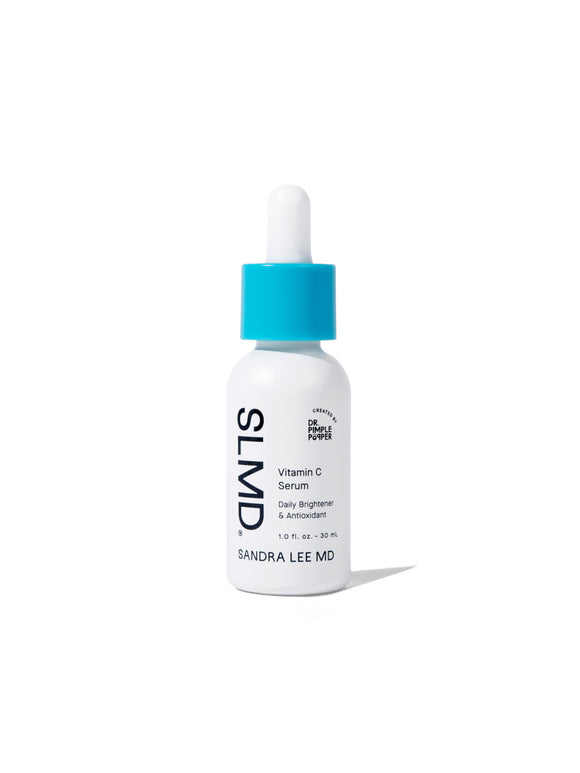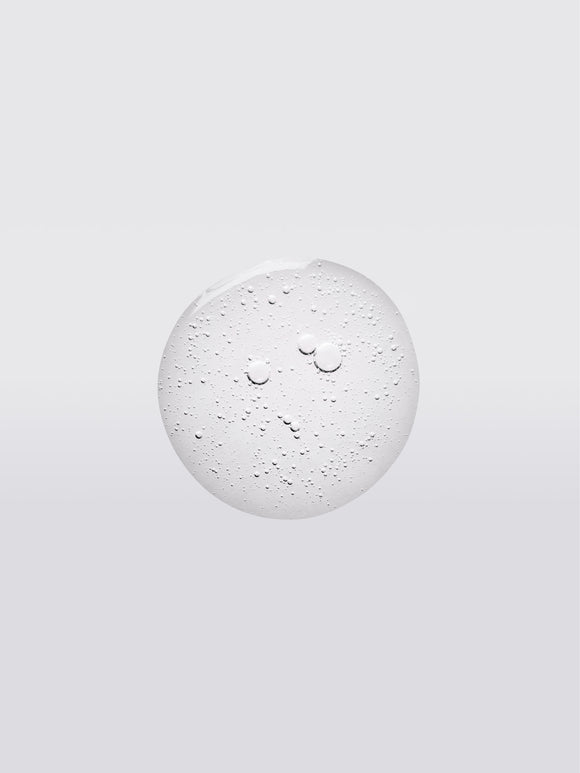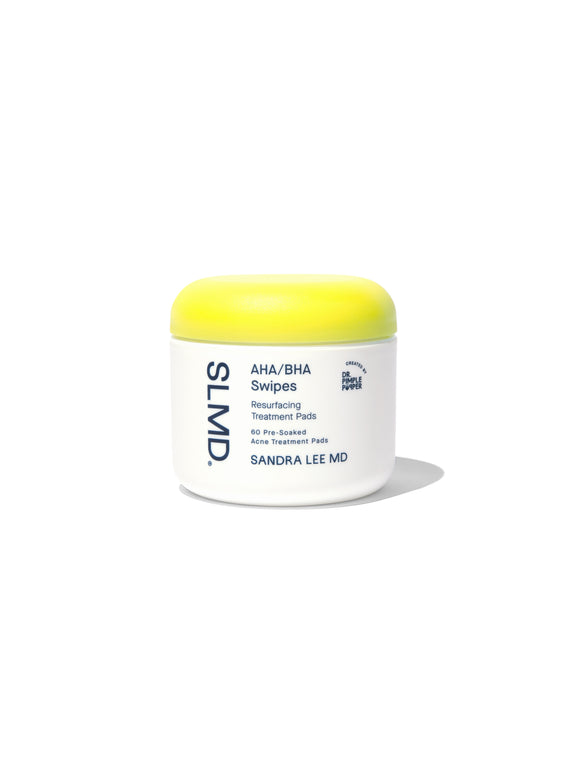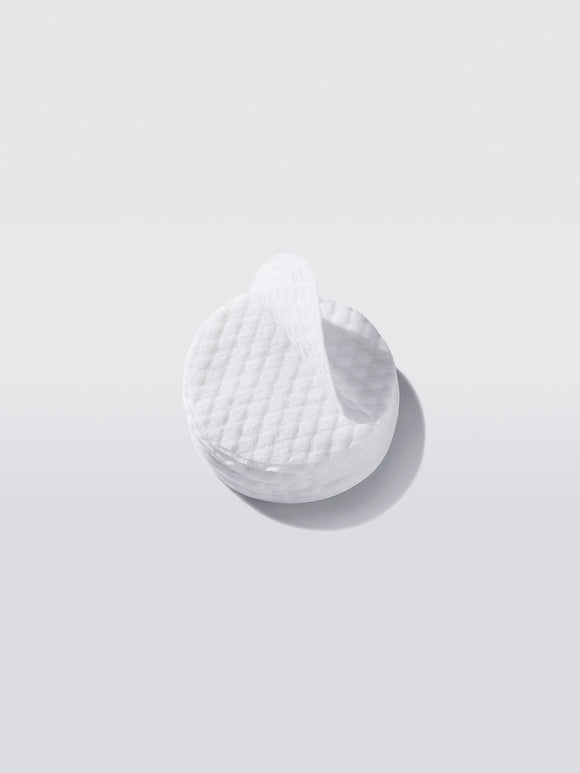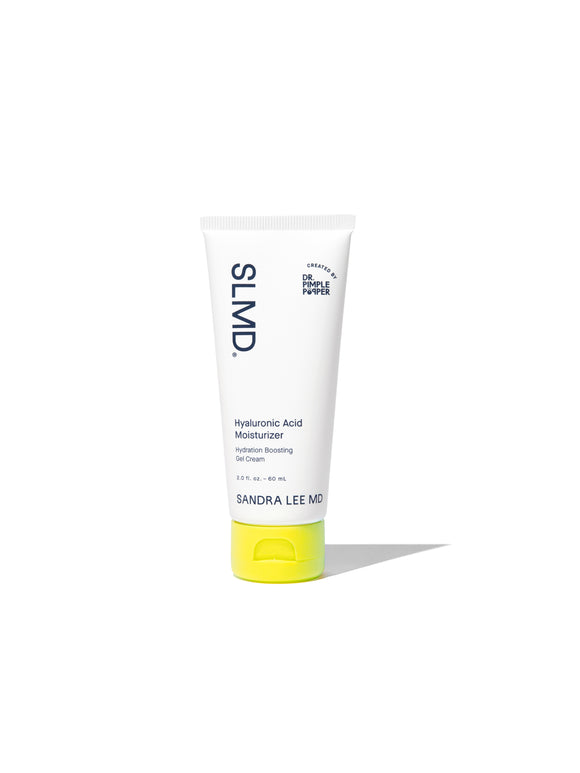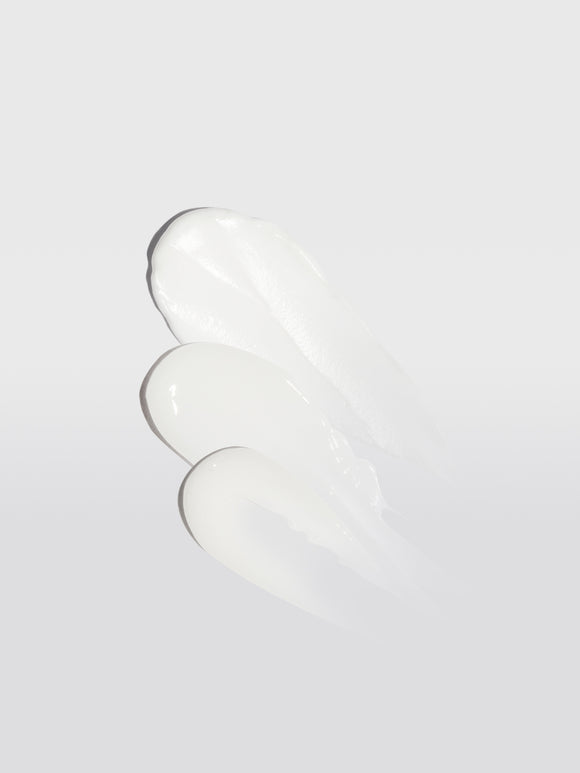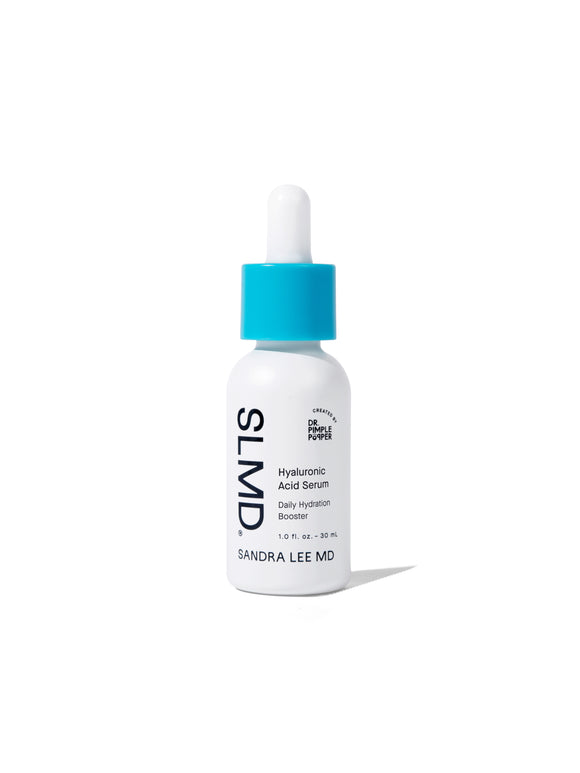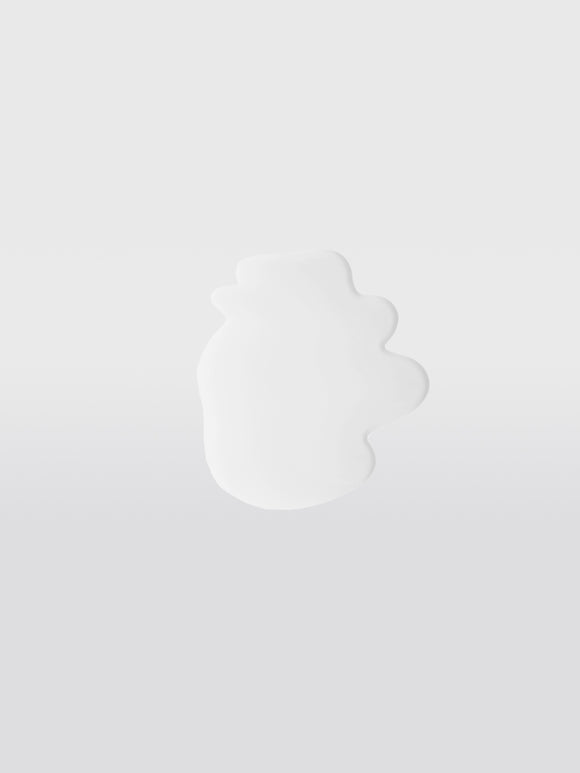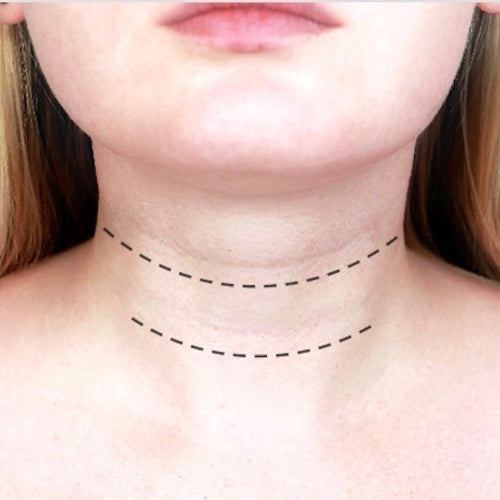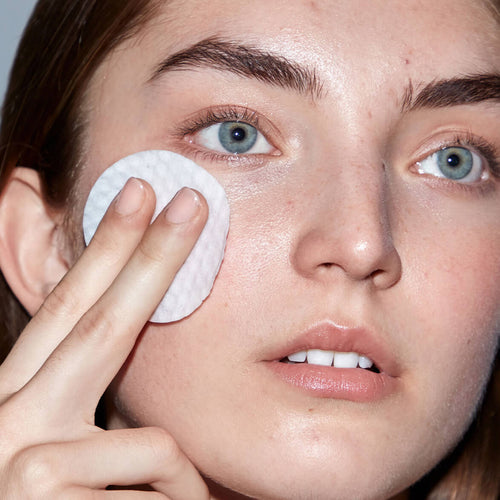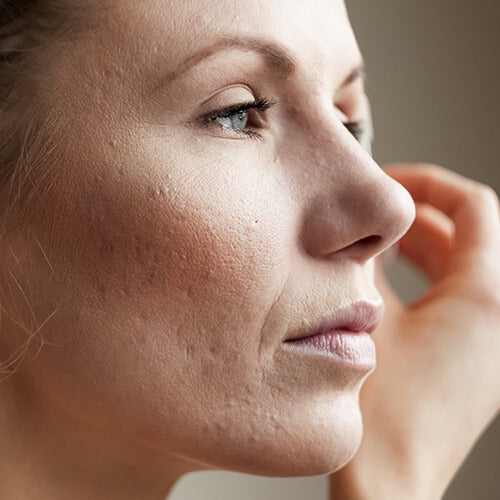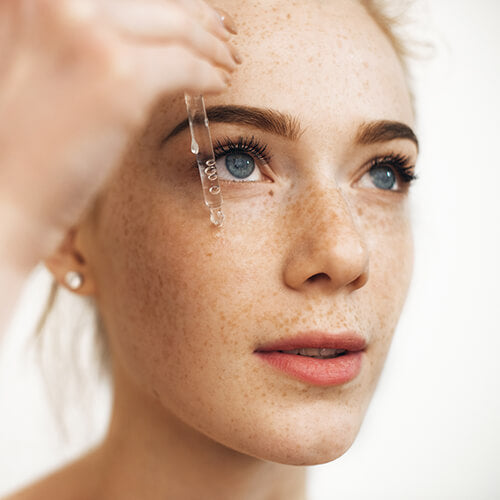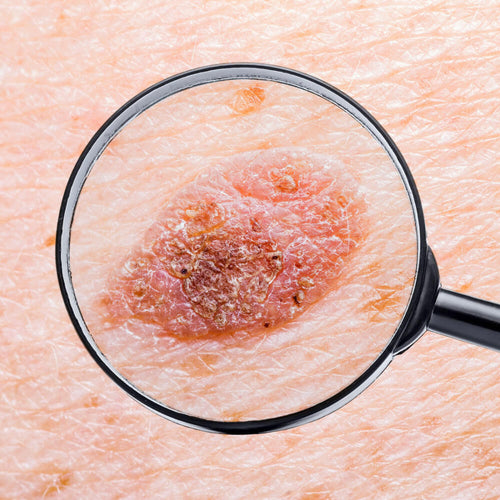
How Skin Ages: Causes and Proven Ways to Keep It Looking Younger
You can't stop the clock, says Dr. Pimple Popper — but you can slow the signs of aging.
Published:
4 minute read
Aging is inevitable, but understanding how your skin changes over time can help you make informed choices to maintain a youthful, healthy look. To understand the science behind aging skin, we asked dermatologist and SLMD Skincare founder Sandra Lee, MD (aka Dr. Pimple Popper). According to Dr. Lee, you can significantly slow down visible signs of aging and keep your skin looking younger, longer, by adopting the right skincare routine and lifestyle habits. Here are her tips.
Article Quick Links
What causes skin to age?
Aging is influenced by two factors: intrinsic aging (what happens naturally over time) and extrinsic aging (the effects of environmental factors and lifestyle). Here’s how both contribute to the aging process.
Intrinsic aging: the natural clock
The term intrinsic aging refers to changes caused by genetics and time:
- Genetics: Your DNA determines how quickly your skin shows signs of aging.
- Gravity and movement: Repeated facial movements and gravity contribute to wrinkles and sagging.
- Cellular waste: Over time, your cells produce reactive oxygen species (ROS), leading to oxidative stress and cellular breakdown.
- Hormonal shifts: Women's skin often ages faster during menopause due to a decline in estrogen, leading to collagen loss and decreased elasticity.
Extrinsic aging: what you can control
Extrinsic aging is largely determined by your environment and lifestyle:
- UV exposure: Sun damage is the biggest factor in premature aging, contributing to wrinkles, pigmentation, and collagen breakdown.
-
Lifestyle choices: Smoking, poor diet, stress, and a lack of sleep
can accelerate the aging process. - Pollution: Environmental toxins contribute to collagen and elastin degradation.
Dr. Pimple Popper's Top Anti-Aging Products
How skin structure changes with age
As we age, the structural integrity of the skin weakens, says Dr. Lee, contributing to common signs of aging. These include:
- Collagen loss: Collagen production decreases, leading to sagging and fine lines. Boosting collagen with retinoids or vitamin C can help.
- Elastin decline: The skin becomes less elastic, making wrinkles more pronounced. Using retinoids may slow down this decline.
- Skin thinning: The skin’s layers thin, making it more prone to injury and slower to heal.
- Blood vessel fragility: Fragile blood vessels increase bruising and bleeding under the skin.
- Melanocyte changes: Pigment-producing cells decrease but become larger, leading to uneven skin tone and age spots.
- Subcutaneous fat loss: Fat beneath the skin decreases and shifts, causing hollowness and sagging. Dermal fillers can help restore volume.
- Increased skin growths: Conditions like skin tags, seborrheic keratoses, and actinic keratosis become more common. Removal or monitoring by a dermatologist may be needed.
- Chronic conditions: Eczema, rosacea, and skin cancer risk increases with age. Use sunscreen to protect against UV damage.
- Sleep creases: Repeated compression of the skin during sleep causes lines on the face and décolleté. Sleeping on your back and using silk pillowcases may help reduce these wrinkles.
Try: SLMD Retinol Resurfacing Serum, Vitamin C Serum
How functional changes impact aging skin
In addition to structural changes, aging affects how well the skin functions:
- Cellular turnover slows: Your skin renews itself more slowly, leading to a dull complexion. Retinoids are can boost cell turnover.
- Water retention diminishes: The skin’s ability to retain moisture decreases. Use hyaluronic acid to hydrate and plump the skin.
- Sebum production decreases: The skin becomes drier, requiring richer moisturizers. Opt for moisturizers formulated to replenish the skin’s natural oils.
- Skin barrier weakens: The skin’s natural moisturizing factors (NMF) decrease, weakening the barrier and making skin more prone to irritation. Look for soothing ingredients like aloe vera and niacinamide.
- Sebaceous glands produce less oil: As oil production declines, skin becomes drier and itchier. Keep skin balanced with moisturizers.
- Sensitivity decreases: Reduced neurosensory perception means the skin becomes less sensitive to pain, increasing the chances of injury.
Try: SLMD Hyaluronic Acid Serum, Hyaluronic Acid Moisturizer, Glycolic Acid Body Lotion
Can you stop skin from aging?
While you can’t stop aging entirely, you can slow down both intrinsic and extrinsic aging with the right skincare routine. According to Dr. Lee, ingredients like retinoids, vitamin C, and alpha hydroxy acids (AHAs) have been shown to improve skin’s appearance by increasing collagen production, promoting cell turnover, and reducing oxidative stress.
Sticking to a consistent routine and protecting your skin from sun damage with sunscreen are some of the most effective ways to maintain a youthful appearance and keep your skin looking its best over time.
Dr. Pimple Popper answers your skin aging FAQs
Q: At what age do signs of skin aging typically start to appear?
A: Signs of aging can show up as early as your mid-20s, but they become more noticeable in your 30s and 40s. Lifestyle choices and genetics play a big role in how quickly aging becomes visible.
Q: Can skincare products really slow down skin aging?
A: Yes! Ingredients like retinoids, vitamin C, and hyaluronic acid have been proven to improve skin texture, stimulate collagen, and reduce the appearance of fine lines.
Q: What’s the best daily skincare routine for aging skin?
A: In addition to cleansing and moisturizing, a routine that includes sunscreen, antioxidants like vitamin C, retinoids for cell turnover, and hyaluronic acid to retain moisture is essential for maintaining healthy, youthful skin.
Q: How important is sun protection in preventing skin aging?
A: Sun protection is one of the most critical factors in preventing premature aging. UV exposure leads to collagen breakdown, wrinkles, and pigmentation changes, making daily sunscreen essential.

Dr. Lee's Last Word
The most important thing we can do for our skin as it ages is to keep it as healthy as possible. I just can’t stress enough how important it is to wear sunscreen, and to follow a basic cleanse, treat, moisturize routine — preferably one that includes nighttime retinol. As you get older, it’s a good idea to visit your dermatologist once a year to make sure your skin is as healthy as possible.



